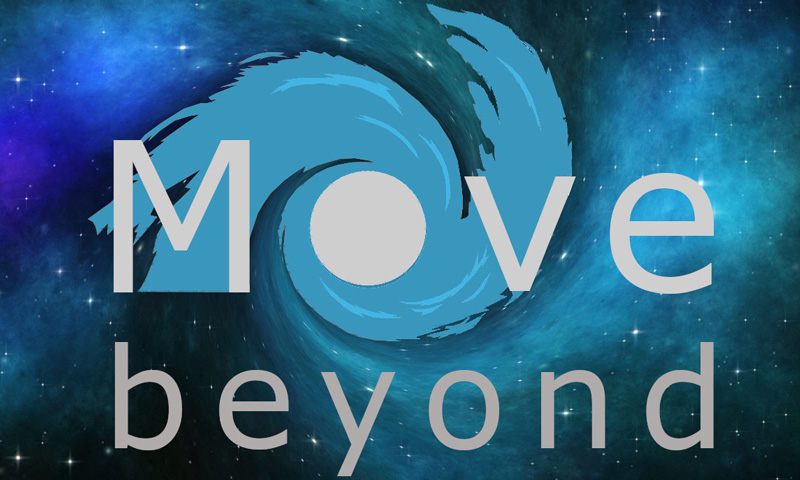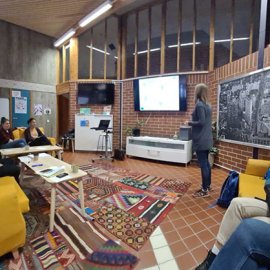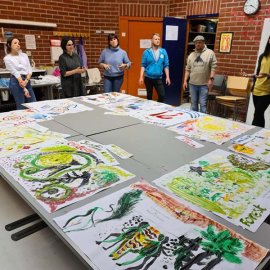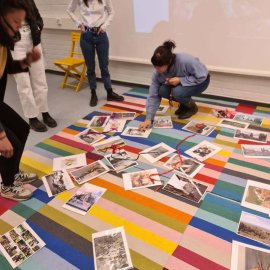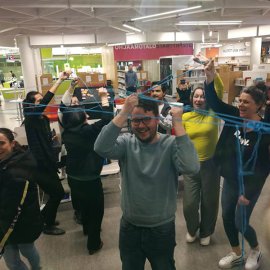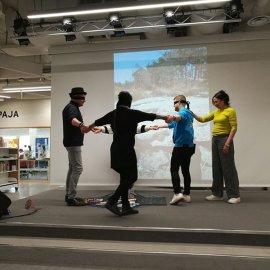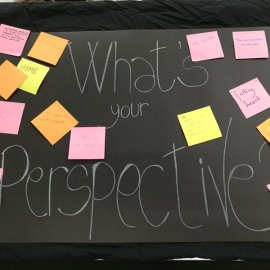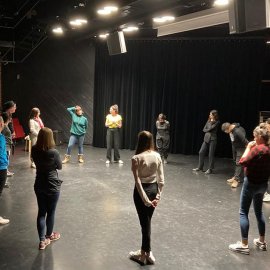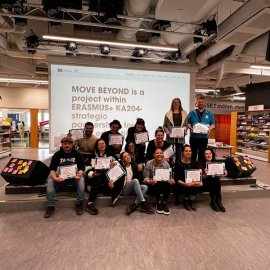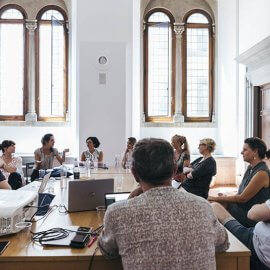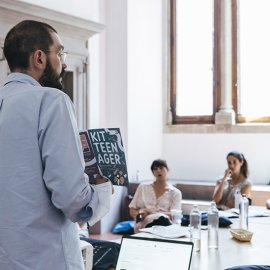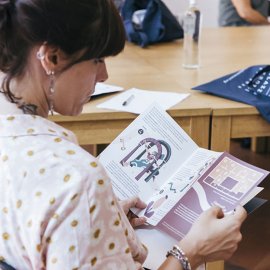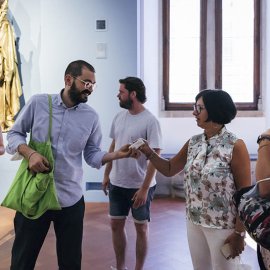Palazzo Strozzi participates in MOVE BEYOND, a European project that is part of the Erasmus+ KA204 action programme and that sets out to promote strategic cooperation for the development of adult education. The project focuses on researching and testing best practices in the field of art and sport designed to further the educational and social inclusion of young people aged between 16 and 26. The Fondazione Palazzo Strozzi’s contribution involves the presentation of its educational approach, interacting with its international partners: Weener XL (‘s-Hertogenbosch, The Netherlands, lead institution); Espoo kaupunki (Espoo, Finland); Vienna Association of Educational Volunteers (Vienna, Austria); Fundacja Instytut Re-Integracji Spolecznej (Lodz, Poland); Fondazione Piazza dei Mestieri (Turin, Italy); Arcadia Musa Centro de Artes (Poceirão, Portugal); Tirantes (‘s-Hertogenbosch, The Netherlands); and CNR-IRCrES (Turin, Italy).
The phases of the project
Project MOVE BEYOND is a follow-up to the previous ESF project MOVE, created to answer to the increase of young people in vulnerable positions noticed by the lead institution. The strategies used in both cultural and physical non-formal education can be important resources to improve the inclusion process of the youngsters in order to motivate them, cultivating their self-confidence and self-esteem and enlight their interests and talents.
During the first phase of the project, which got off the ground in 2019, guidelines were drawn up governing approaches to informal education for art and sport with a view to developing eight skills promoted by P21 (Partnership for 21st century skills): communication, collaboration, creativity, critical thought and problem solving, flexibility, social skills, leadership and spirit of initiative. The main goal is to provide educators with paedagogical strategies and educational tools to allow them to design Non-formal educational contexts making it possible to stimulate creativity via, among other things, a comparison among different perspectives and points of view.
Having kicked off by drafting a theoretical structure shared by the various partners involved in the project through on-line meetings, the project is now continuing with the programming of educator training activities.
At the first transnational meeting hosted by the Fundacja Instytut Re-Integracji Spolecznej based in Lodz, Poland, on 22 and 23 November 2021, the international team discussed the organisation of a training activity specifically for trainers. The training meeting at Espoo, Finland, provided the partners with an opportunity to cooperate on drafting a skills profile for the figure of the trainer who, through informal activities inspired by art and the use of the body, will contribute to the development of the eight transversal skills identified. The trainer is the focal point for achieving the goals and the relative assessment of the subsequent pilot training schemes.
In the Train the trainer phase coordinated by Arcadia Musa Centro de Artes, the project sets out to prepare educators to address various different situations, fielding multi-disciplinary methods and tools for the purpose. A theoretical base will be supplied for the trainers’ use and implemented in the first part of the project, and workshop techniques associated with art and sport will be tested to permit greater educational flexibility.
In May and June 2022 the training activities proposed in Espoo have been adapted and implemented by all the partners, each in the context of their own organisation, with the young people aged between 16 and 26 who are the project’s target audience. Palazzo Strozzi proposed its activities in conjunction with Piazza dei mestieri, another Italian partner involved in the project. The pilot training scheme aimed to evaluate the theoretical guidelines and their applicability to educational practice.
The project will then continue with a reflection on the pilot activities performed and focus on their relative assessment thanks to successive on-site encounters at the Vienna Association of Educational Volunteers and, in July, at Palazzo Strozzi.
The end product will involve the production of a toolkit for supporting educators in their planning activities and training courses developed on the basis of the MOVE BEYOND project’s key content.
Palazzo Strozzi’s role in the MOVE BEYOND project
Palazzo Strozzi is an important partner in the MOVE BEYOND project inasmuch as it is the only participating institution with an exhibition space and it contributes its experience in the field of museum and heritage education in Non-formal educational contexts, as well as its natural bent for international debate in the field of art and cultural heritage education.
Palazzo Strozzi has actively worked to add to the project’s guidelines the psychological theories proper to cultural heritage education which are useful for implementing educational strategies. This theoretical research is an essential starting point for defining the programming of training and pilot activities for trainers.
Work has focused on preparing the meeting at Espoo, Finland, which was held in April 2022 and in the course of which Palazzo Strozzi proposed workshop activities for training trainers. The workshops’ aim was to stimulate a process of active participation and the development of a critical sense through the use of involvement methodologies proper to museum and heritage education inspired by educational experienced in the course of the exhibitions promoted by the Fondazione Palazzo Strozzi in recent years.
Discover the project Keep up to date (Facebbok Page)